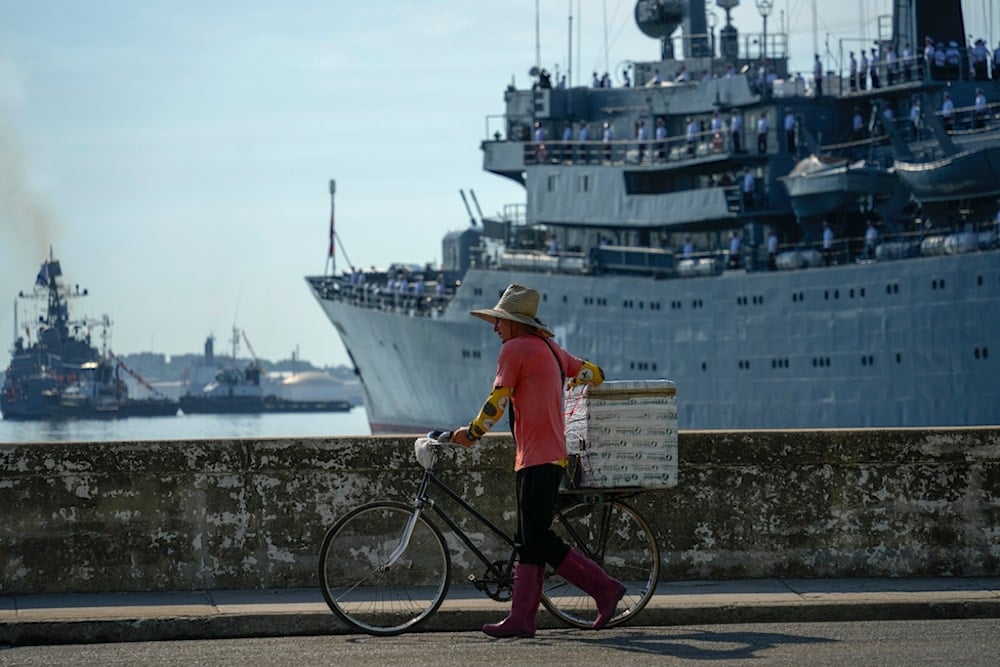Warships from Russian Baltic Fleet start arriving at Cuban port
Warships from Russia's Baltic Fleet started arriving at the Havana port of Cuba as part of an event being held by both parties.
-

A street vendor walks his bicycle by the Russian training ship Smolnyy as it arrives for a working visit, in the bay of Havana, Cuba, Saturday, July 27, 2024 (AP)
Warships from Russia's Baltic Fleet began arriving at the Cuban port of Havana on Saturday, marking a significant naval presence in the Caribbean.
According to reports from Sputnik, the Smolny vessel was the first to enter the port early in the day, with the Neustrashimy frigate and the Yelnya vessel expected to follow later.
This visit by the Russian fleet includes a series of scheduled events aimed at fostering military and diplomatic relations between Russia and Cuba. The fleet's personnel will engage in various activities, including a meeting with the head of the Cuban Navy and local Havana authorities.
As part of the goodwill visit, which is the second this year, Cuban citizens will have the opportunity to tour the Smolny warship on July 28-29. This open house aims to provide the local population with a closer look at the naval capabilities and operations of the Russian Baltic Fleet.
Latest visit
Cuban President Miguel Diaz-Canel on June 16 visited the Russian frigate Admiral Gorshkov, docked at the port of Havana.
"Today, we toured the interior of the frigate Admiral Gorshkov and the deck of the Kazan submarine, ships of the Russian Navy, which are on an official visit to the port of Havana. It was an impressive and pleasant afternoon, even under persistent rain. Welcome, friends from Russia," Diaz-Canel wrote on his account on X at the time.
The Cuban Foreign Ministry had confirmed that "a naval detachment from the Russian Federation consisting of four vessels — the frigate GORSHKOV; the nuclear-powered submarine KAZAN; the PASHIN fleet sea tanker and the salvage tug NIKOLAI CHIKER — will pay an official visit to the port of Havana from June 12 to 17, 2024."
The visit came on the grounds of historical relations between the two countries and strictly complies with international regulations, the statement indicated, affirming that "none of the vessels carries nuclear weapons. Therefore, their stop-over in our country does not represent any threat to the region."

 2 Min Read
2 Min Read








